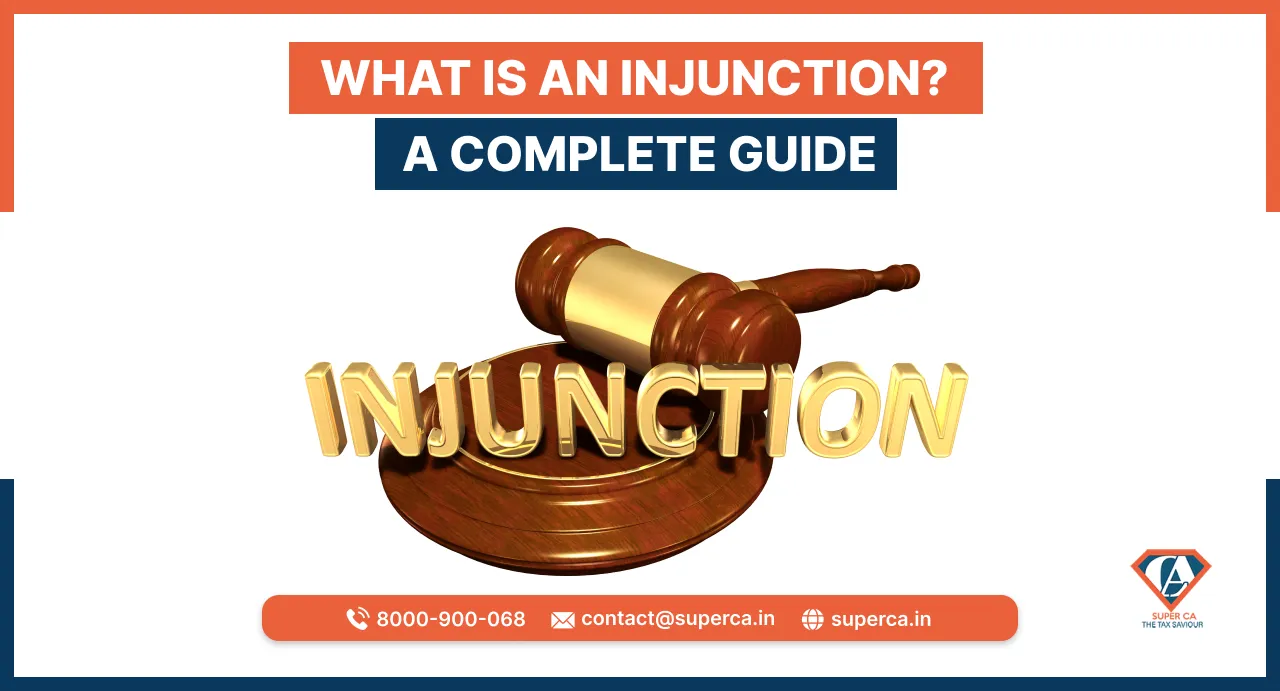What is an Injunction? A Complete Guide


An injunction is a legalised remedy that is granted by a court of law in order to prevent a party from doing a wrongful or continuing a wrongful act to a case that has already begun. In case a party could not comply with the injunction that is granted by the court, then contempt of court or criminal or civil penalties can be levied on the party by the court of law.
An injunction can not be invoked until and unless there is a possibility of an injury that can not be rectified. No applications for injunction will be facilitated by the Indian Legal System in any other cases. An irreparable injury or an unrectifiable injury is when it has been proved that the harm is impossible to amend the harm in any other form that has been inflicted on the applicant.
The law of injunctions is clearly covered in detail under various Relief Acts. The law of injunctions is applied and implemented according to the Civil Procedure Code. To be more precise, the laws applying or relating to this provision include Section 94 and Section 151 of the Civil Procedure Code.
An Applicant is free to furnish the application for an Injunction in the following cases:
The below mentioned items are the different types of injunctions that can be issued:
The provisions of an injunction need to be compiled with the parties. If the parties fail to comply with these provisions, then the defendant will have to be punished for Contempt of Court when the necessary trial is performed. In such a case, the defaulter will be forced to remit the specified penal charges and may have to go to prison. The amount and manner of punishment will be specified on the basis of the type of default.
When a prohibitory injunction is granted by the court, then the defendant is prohibited from doing any wrongful acts that might be an infringement of the legal rights of the plaintiff. For instance, Prohibitory injunction prevents a breach of contract or protects confidential information from being disclosed.
A mandatory injunctions prohibits the continuation of a wrongful act by the defendant that was already started at the time of issuing the injunction. The main purpose of issuing a mandatory injunction is to restore the rightful order of the wrongfully ordered things. For instance, a mandatory injunction can make the defendant transfer the possession of a property to the rightful owner. At the time of issuing a Mandatory injunction, the Court will consider whether it was necessary to grant an injunction in order to do justice or the plaintiff could be compensated adequately.
An interim injunction is a temporary injunction that operates when the case is pending before the court. Therefore, it can force or avoid a party from performing certain actions. The main reason to issue an interim injunction is to preserve the status-quo. The following are taken into consideration by the court while issuing or not issuing an Interim Injunction:
In this blog, we learnt about an Injunction, its types and requisites for an injunction. We also came to know that it is better to comply with an injunction otherwise various criminal or civil penalties can be levied and one can also end facing the contempt of court.

|
Essential LLP Registration Documents: A Complete Checklist for Entrepreneurs Author: Rahul Singh 04 Apr, 2024
|
Get inspired by these stories.